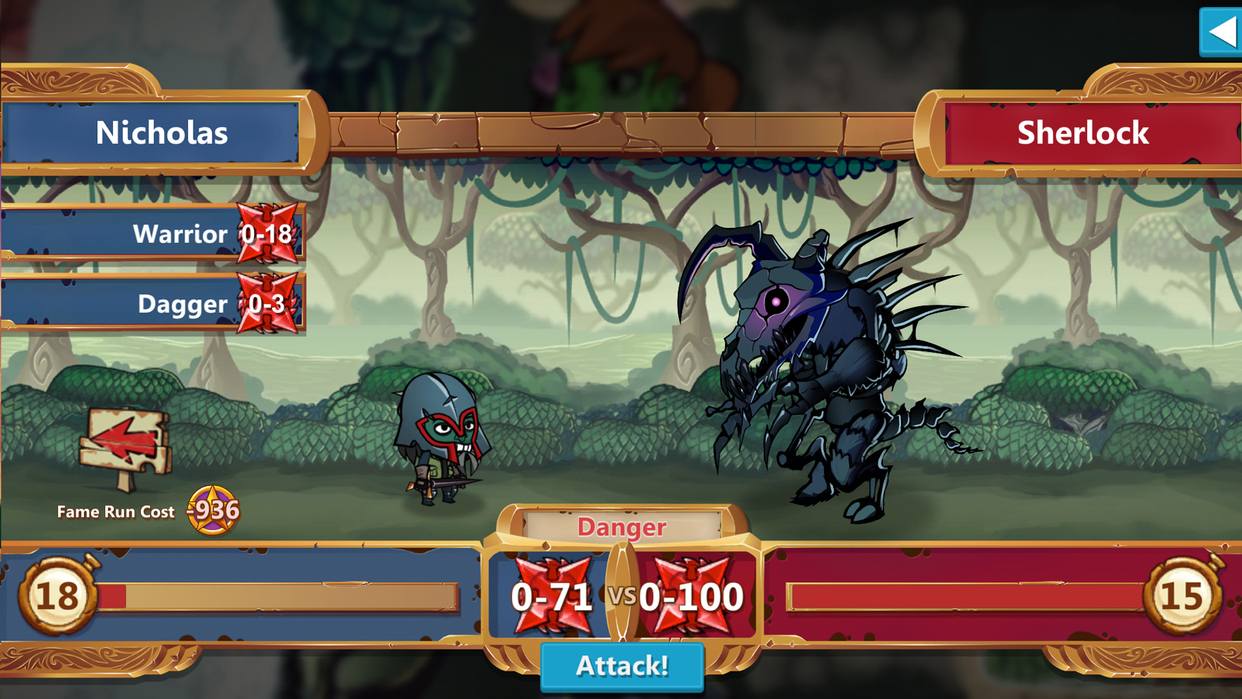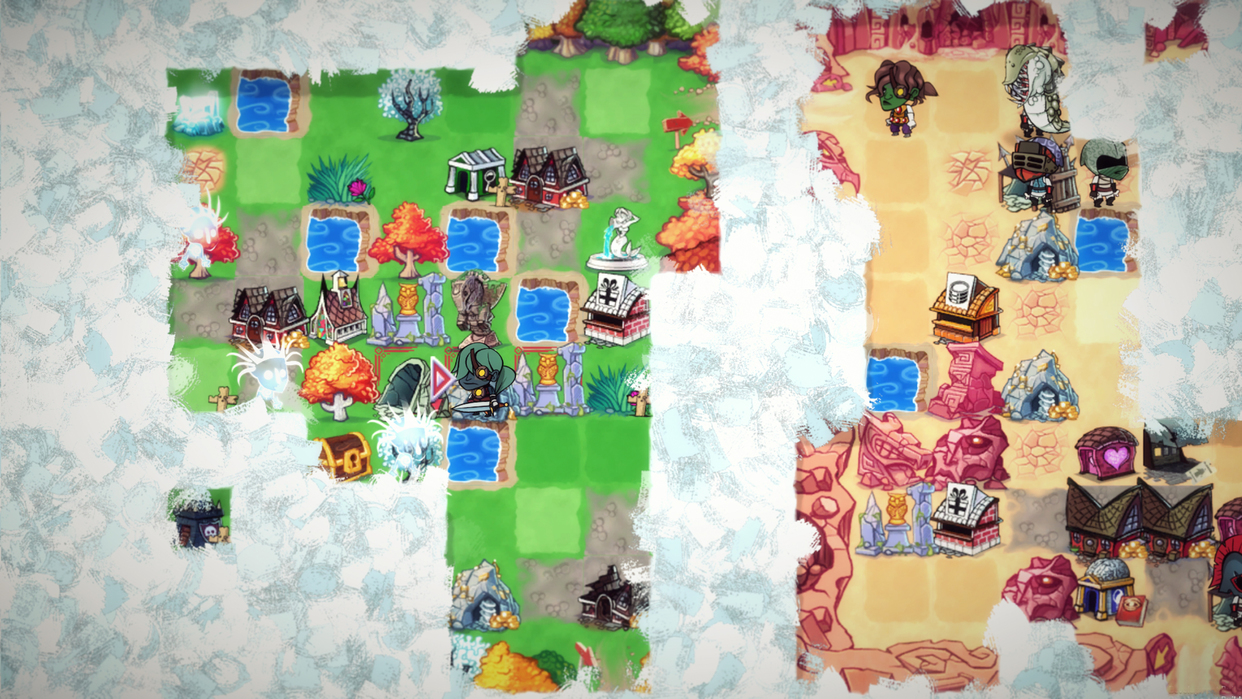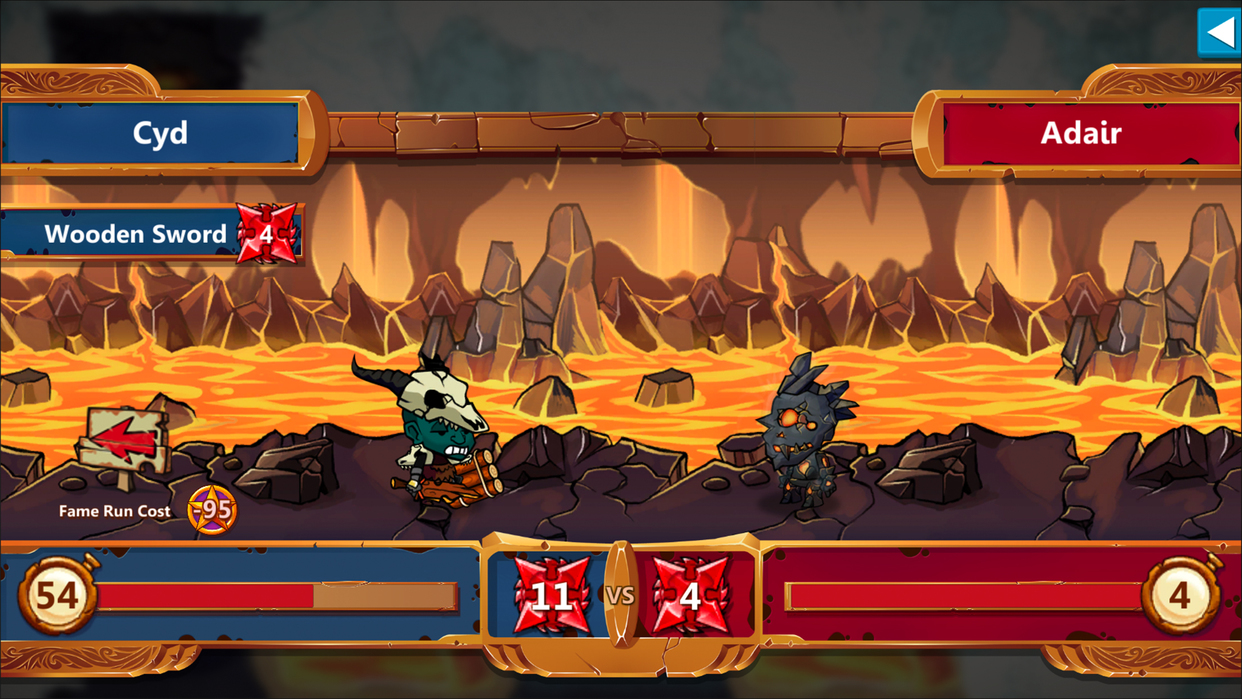 We’ve been riding the renewed wave of roguelikes and roguelites for several years now. By the very nature of the genre, a good roguelike can last players for a really long time. What that means is that any new entry is going to have to have some kind of way of standing out if it hopes to get attention. Hero Generations ($4.99) has a strong, easily-understood gimmick: every move costs a year of your character’s life, and when they run out of years, it’s game over. Before that happens, you need to find a mate and have a kid, who will hopefully be able to carry on some of the previous character’s traits and legacy. As you expand your abilities and fame from generation to generation, you’ll eventually piece together an urgent goal, but you won’t be able to do anything about it if your family line dies off early.
We’ve been riding the renewed wave of roguelikes and roguelites for several years now. By the very nature of the genre, a good roguelike can last players for a really long time. What that means is that any new entry is going to have to have some kind of way of standing out if it hopes to get attention. Hero Generations ($4.99) has a strong, easily-understood gimmick: every move costs a year of your character’s life, and when they run out of years, it’s game over. Before that happens, you need to find a mate and have a kid, who will hopefully be able to carry on some of the previous character’s traits and legacy. As you expand your abilities and fame from generation to generation, you’ll eventually piece together an urgent goal, but you won’t be able to do anything about it if your family line dies off early.
That’s a neat hook. Even the physical traits of the characters will be passed down to their children, though they all look pretty odd. Your legacy extends to more than just your children, as well. You can build structures that will last for generations, though like all things, they’ll eventually degrade as well. You’re not the only one hard at work, however. In addition to the monsters you’ll run into on the map, there are tons of other adventurers working their way through their lives. It makes for a crowded map most of the time, and it’s hard to go more than a few steps without bumping into something that wants to fight. Losing a battle doesn’t usually result in a game over, but instead knocks five years off of your character’s life. You don’t want to go down in too many battles, but a loss here and there can be tolerated.
That aspect might make it seem like Hero Generations is an easy-going roguelite, and in a lot of ways it is. There’s an awful lot to learn, but you can choose the pace at which you want to learn it. If you want to spend the first few games bopping around the map, smacking creatures in the head, and marrying the first decent candidate you see, you can do that. You’ll probably have some fun with it. At a certain point, though, you’ll want to get serious, and that’s when you’ll have to start managing things very carefully. Though your lifespan runs around 70 years, a good portion of those years will have you in a state too weak to handle most enemies. Unless you really luck out with your genes and prepare the proper buildings, the first part of your life and the last part will see you barely able to defeat anything, making walking about an especially dangerous proposition for older folks.
Since each move consumes some of your lifespan, you need to plan your course very carefully. Do you want to spend some time powering up your attack to take down a boss? Would you rather build up some gold or valuable items that can be passed down to the next generation? Or will you focus on fame, which usually gives you the best choices for mates? Without spoiling too much, there’s an event that takes place after a certain number of generations that you need to be ready to take care of, so you can’t just trundle around with no purpose forever. I’m starting to sound like my grandfather here.
Children get to carry forward some random bonuses from their parents. They’ll also get some other benefits, such as boosted fame, items, and gold, depending on how many generations into the game you are. You can hedge the bets a little by building certain structures prior to retiring, but you’re always going to be at the mercy of randomness to some extent. While the map doesn’t change in any big ways from generation to generation, the whole thing will be fogged over when you start a new generation, too. Gee, mom, you couldn’t have drawn me a map or something? You’ll have to spend the first bit of each life getting your bearings again, which is just as well since you probably won’t be able to kill anything until you’re an adult. You’ll also want to sort out your plan for the next generation early on. Waiting until you’re middle-aged before at least figuring out a potential mate is playing with fire.
This gives the game a flow all of its own. You’ll spend the first half of any given character’s life building up their strength and resources, and the last half setting things up for the next character. You’re getting a sort of persistence with your character that many other rogue-inspired games don’t offer, but the price is that you must always spend a good portion of your time setting things up for the next play. I like it when a game forces me to approach it with fresh tactics, and Hero Generations certainly demands that.
That said, just because something is new, it doesn’t mean it’s good. I can’t decide if the core gimmick of Hero Generations is the best thing about it or the worst. The novel strategies required are a good thing, but I’d be lying if I said it didn’t become rote after several generations. I’m sure you could read all kinds of philosophy into this, but childhood and the twilight years just aren’t very fun. You’ll mostly be repeating the same actions in these phases, with the fresh meat only found in the middle years. The extremely limited inventory can also be quite vexing. You can only hold two things at a time, and that includes any weapon or defensive items you want to carry. In a vacuum, a character spending their entire life questing for a single treasure sounds kind of cool, but when you’ve got a relatively small number of generations before the big show, it’s almost more trouble than it’s worth.
I also really don’t enjoy the combat. Each battle lasts for one turn regardless of the outcome. A random number from zero to you and your opponent’s maximum power will be drawn, and whoever gets the higher number wins. The loser sheds five years, and if it’s enough to kill them, they’ll be removed from the map. Otherwise, they’ll get bumped to an adjacent space, where they might well be in your way again for another kicking. Technically, it’s possible to lose to even the weakest of foes if the random number generator doesn’t like you, so once again, be sure you can afford to lose before you get into any battle. There’s an awful lot of luck at play here, and given just how much fighting you’ll likely be doing, it’s disappointing there isn’t more to do here but pray for a good roll.
Finally, I’d be remiss if I didn’t mention just how opaque the game is in the early runnings. There’s a tutorial here that barely scratches the surface, and if you’re the sort that is turned off by games where you spend the first hour or so trying to untangle knots, Hero Generations will probably frustrate you more than anything. Once you understand how it all works, it’s relatively easy to play, but the game really ought to do a better job of explaining itself in its tutorial. I mean, that’s kind of the point of having one of those. The interface does a decent job given all the functions it needs to accomplish, but it’s also a little on the complicated side, so again, come ready to learn if you plan on coming.
Hero Generations assuredly has a feel of its own, and although it’s occasionally a double-edged sword, the generational aspect of the game does present interesting challenges and tough choices. Its odd mix of complexity and a moderately low level of difficulty make for a confused package, but I could see many people taking to it for a little while. I enjoyed Hero Generations for a few runs, but I got tired of it all faster than I thought I would. The weak combat system quickly became dull and even occasionally frustrating, an issue compounded by just how much of it there is in any given session. I’ll give the game points for a clever idea and solid construction, but it’s hard to recommend it with too much zeal. I’d say that if you like the sound of the gimmick, you’ll probably get some fun out of the game.


